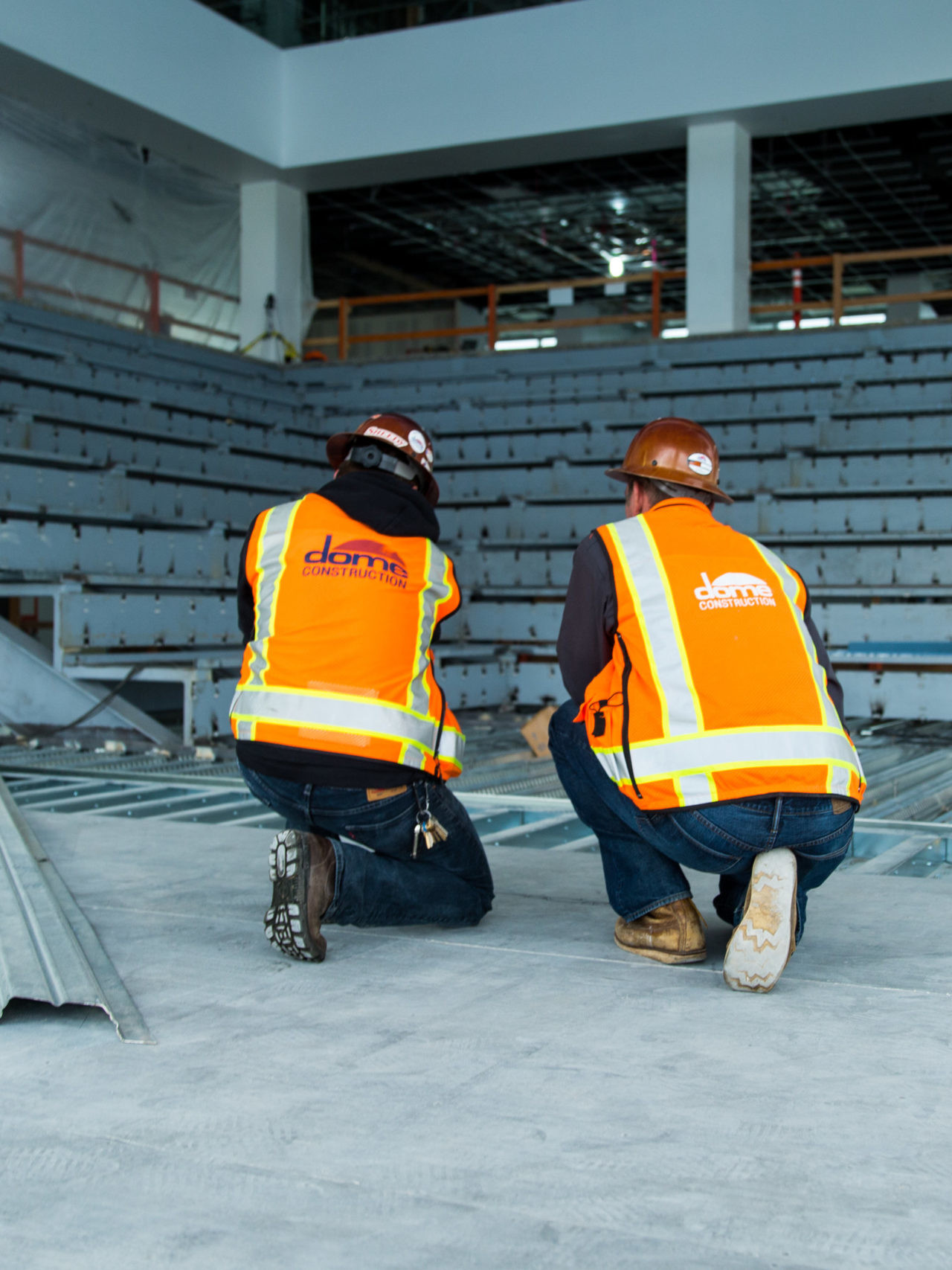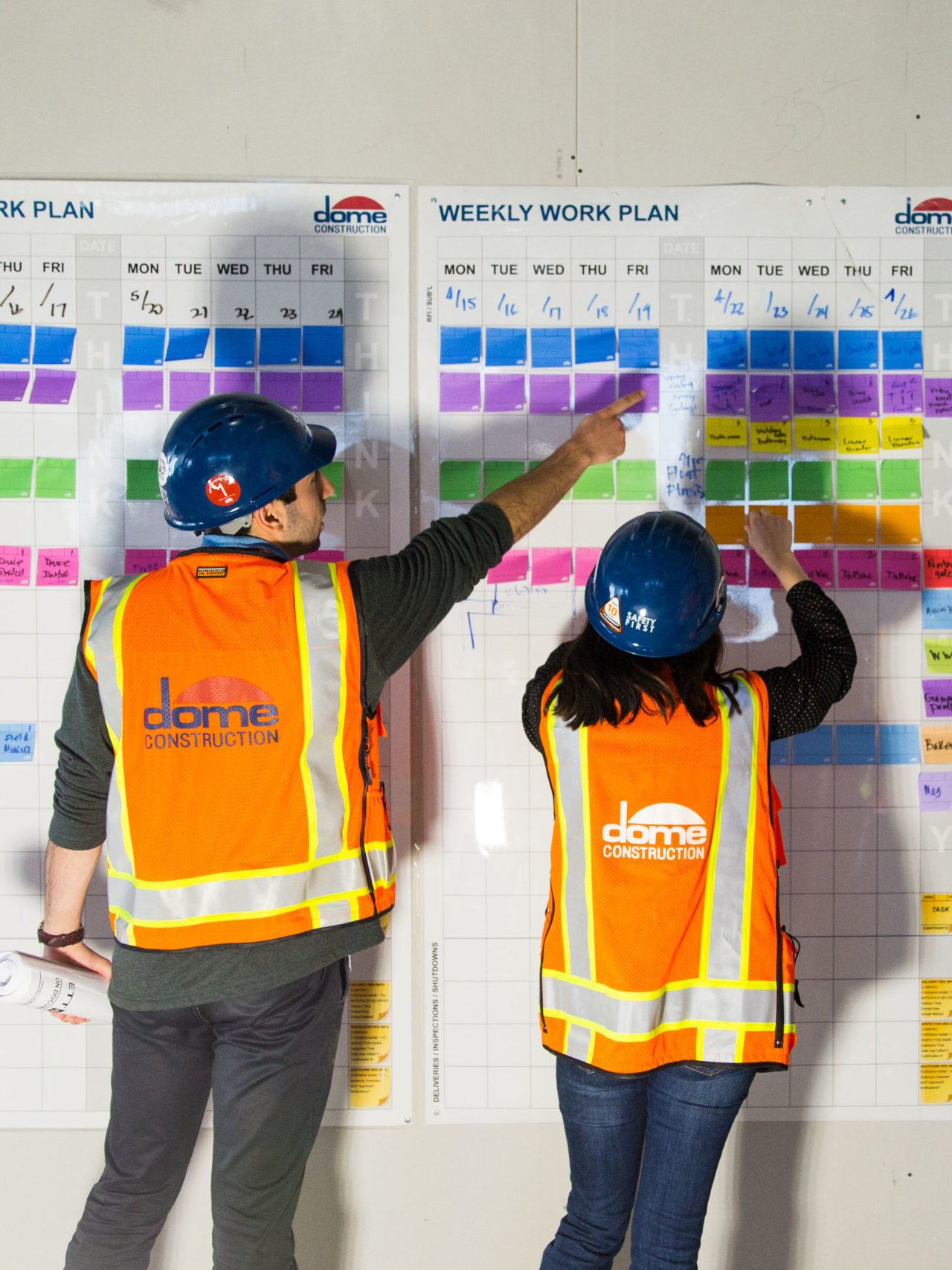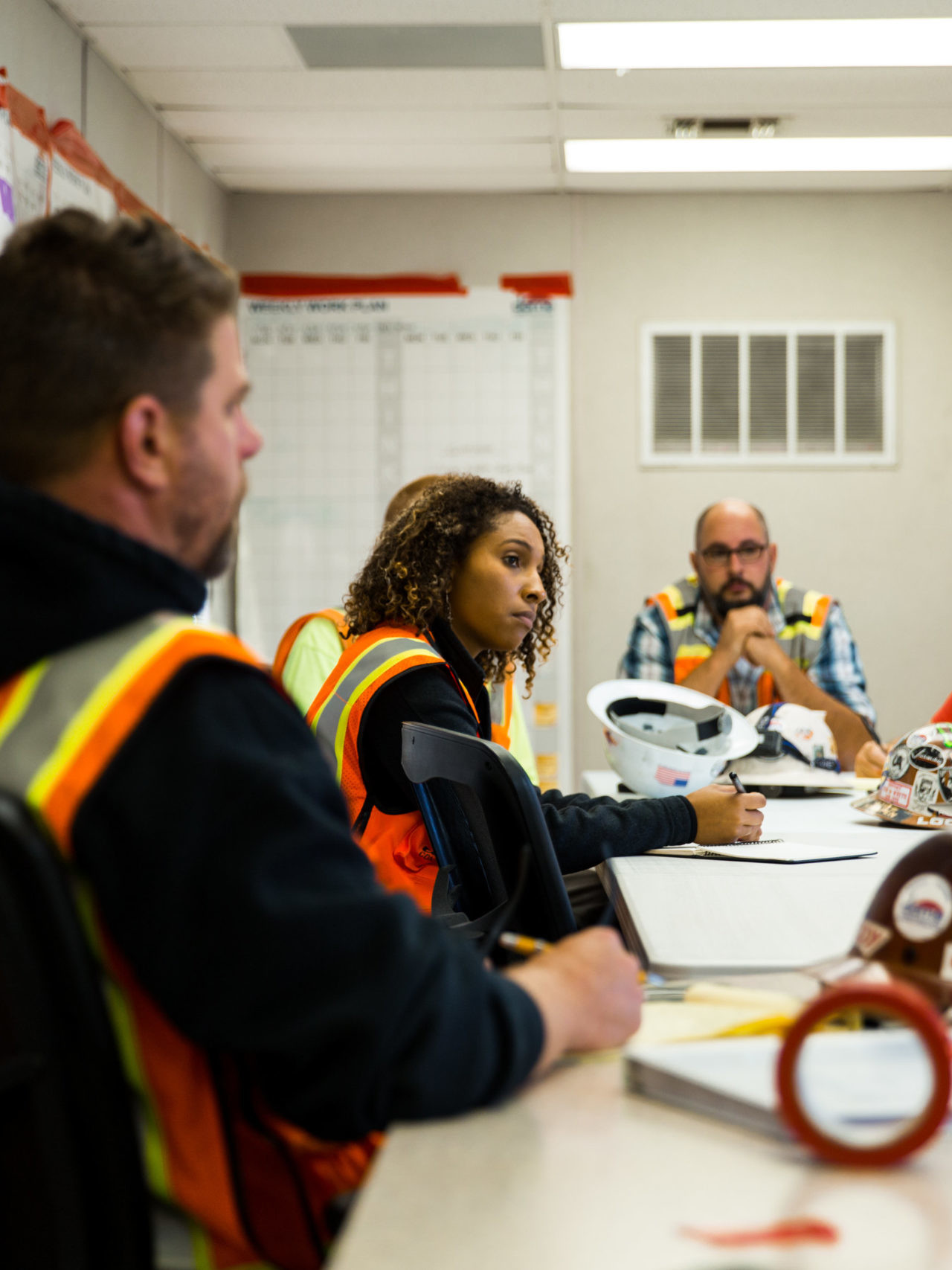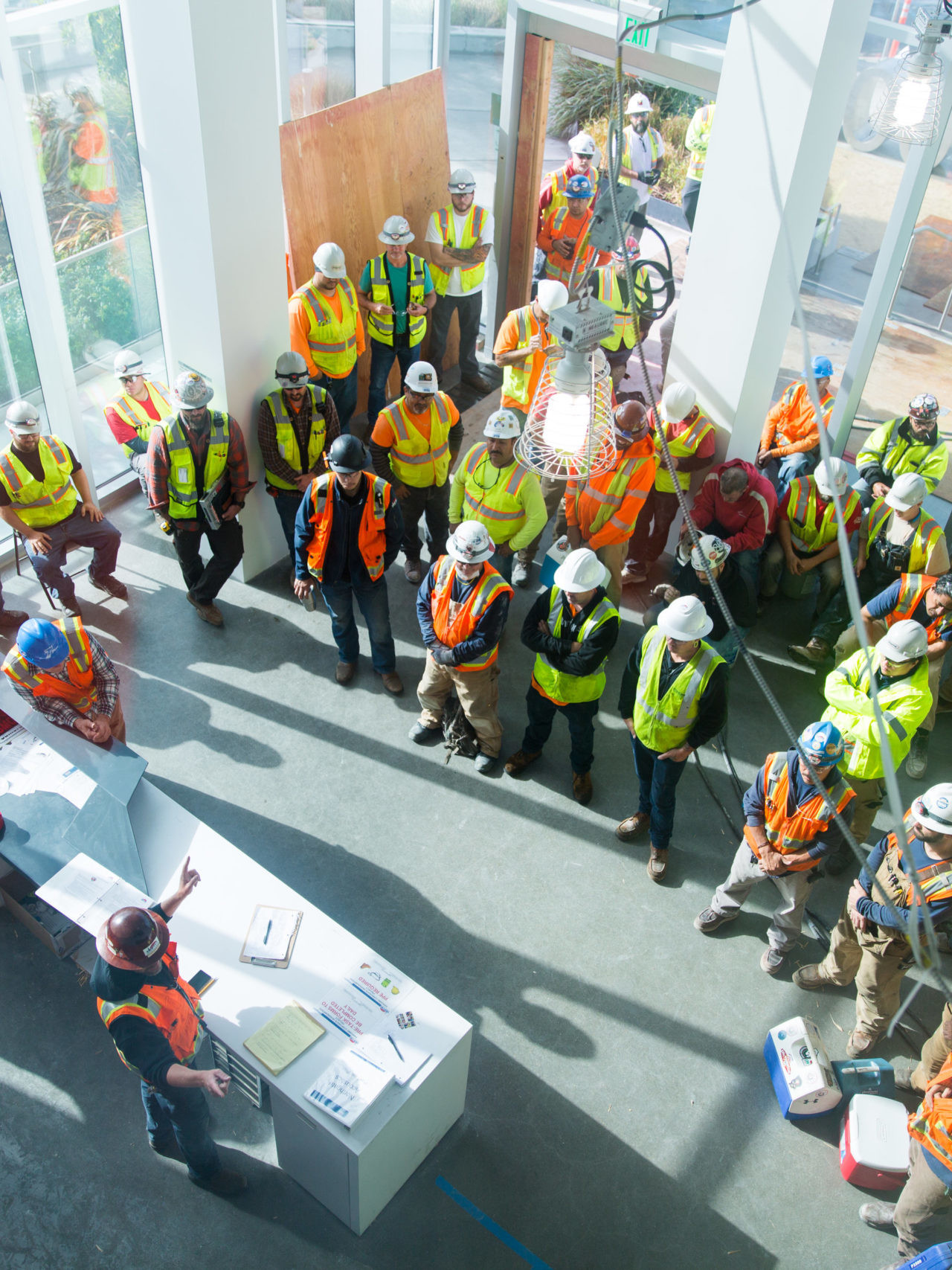Building Safe Teams
Dome is working to provide an environment that supports Psychological Safety* thru diversity, equity, and inclusion initiatives. We believe psychological safety is all about fostering an environment where every employee and partner is able to bring their full self to work and feels safe to voice their opinions, thoughts, or ideas without fearing they will be judged. This environment leads to more innovative and safe practices on our job sites.
During safety week in 2021, Dome discussed the importance of Psychological Safety in the workplace; check out our blog post here. In the post, we discuss the definition of psychological safety and our efforts to promote it. This year, we would like to continue that discussion and focus on how psychological safety contributes to physical safety, signs that you have psychological safety on your team, and what we are doing at Dome to promote diversity, equity, and inclusion initiatives.
Building Safe Teams
How psychological safety and diversity, equity and inclusion contribute to physical safety on a construction site
According to a new Pew Research Center survey, 89% of adults say it is essential for today’s business leaders to create a safe and respectful workplace. This ranks at the top of a list of qualities and behaviors the public views as essential for corporate leadership, honest and ethical, fair pay, and good benefits.
Employees feel more empowered to speak up, provide ideas, and be innovative
Improved commitment to the organization, and employee retention
Celebrating and valuing the diversity of individuals and our teams will create a more positive, open-minded, and better performing workplace
According to Burr Cota, Dome’s Executive Coach, “When an organization prioritizes psychological safety, they free and empower all employees to show up every day, bring their best, have high engagement, and be connected to the organization’s purpose and WHY.” Burr says, “When organizations and teams are not operating from a place of fear and are not worried about what happens if they fail, the doors are open for them to look for creative approaches and problem-solving, which requires creativity and safety. The highest performing teams do a great job of this.”
Building Safe Teams
How are we creating PS at Dome?
Dome started its journey to implement Psychologically Safe practices three years ago when our leadership took the initiative to make culture the centerpiece of Dome’s strategic plan. “We decided in this meeting that the most important thing we build are relationships both internally and externally,” Melissa Berg, Dome’s Director of Inclusion, Culture, and Engagement, mentioned. Thru a collaboration of our Human Resources Dept, our Learning and Development Dept, our Risk Management Dept, and our DEI initiatives, Dome has already directed a lot of time and resources to implement programs and awareness training.
Creation of training programs and workshops to enhance psychological safety, including:
Conscious Inclusion awareness, allyship scenarios, onboarding & alignment courses in Diversity, Equity, and Inclusion
Leadership training for field and office with a focus on building leaders who understand diversity, equity and inclusion
Lean Construction practices
Building Safe Teams
Signs of PS on a jobsite, how do we know we are making progress?
Diversity doesn’t stick without the action of inclusion
It’s one thing to say that we encourage diversity and inclusion, but it’s another to show the work we have put in to take actions of being inclusive within our diverse teams. One way we capture our progress is through our engagement surveys. We have included statements such as: ‘I feel like I belong and can be myself at work’ and ‘I feel like I have opportunities to share my opinion without judgment.’ We want all of our people to respond positively to these statements regardless of gender, race, sexual orientation, ability, or age.
Being supported by Dome with their safety practices on each Dome job site is very important to me. Dome consistently acknowledges the importance of keeping up with its safety culture on every project. Being able to stop a process we deem unsafe makes people understand that safety really is more important than getting the extra dollar by getting things done unsafely. — Employee quote from an engagement survey
In addition to our engagement studies, Dome has put a great deal of effort into recruiting and hiring for diversity and placing diverse employees in upper management positions.
Evidence of this is two project teams made up of an entirely Latin makeup, Kaiser Hearing Aid Center & Kaiser Discharge Pharmacy. Juan Restrepo, Project Manager for both projects, shared, “I don’t usually see all Latin upper management positions in construction; it is more common to see Latin employees as superintends, laborers.” Rarely does he see entire teams formed by something other than Caucasian employees.
Not only does Dome actively recruit and hire for diversity, but they do that across the board in all of the positions.
Both Kaiser Hearing Aid Center & Discharge Pharmacy project teams were led by Juan Restrepo, Project Manager, Hector Ibarra, Assistant Project Manager, Arturo Castaneda, Superintendent, and Marco Morales, Project Engineer. Juan shared the importance of creating an environment where employees can be comfortable being their authentic selves
On our team, we have taken the time to build relationships, and everyone is able to speak up with ideas, questions, or concerns without feeling like there will be negative consequences
Dome’s goal to create psychologically safe teams is just one way we strive to value our people. By seeking to understand our diverse team dynamics, we’ve made incredible strides in ensuring our employees have a safe place where they can show up as their whole selves. The work Dome has put in to create safe teams is far from done but know we are heading in the right direction. We are so excited about what we are going to accomplish in the years to come. Thank you to everyone who has helped us make it this far! We invite you to join us in making a difference in equity and inclusion in the construction industry.
*Psychological Safety – The term Psychological Safety was first introduced by Amy C. Edmondson of Harvard University. Psychological Safety – Amy C. Edmondson (amycedmondson.com)





